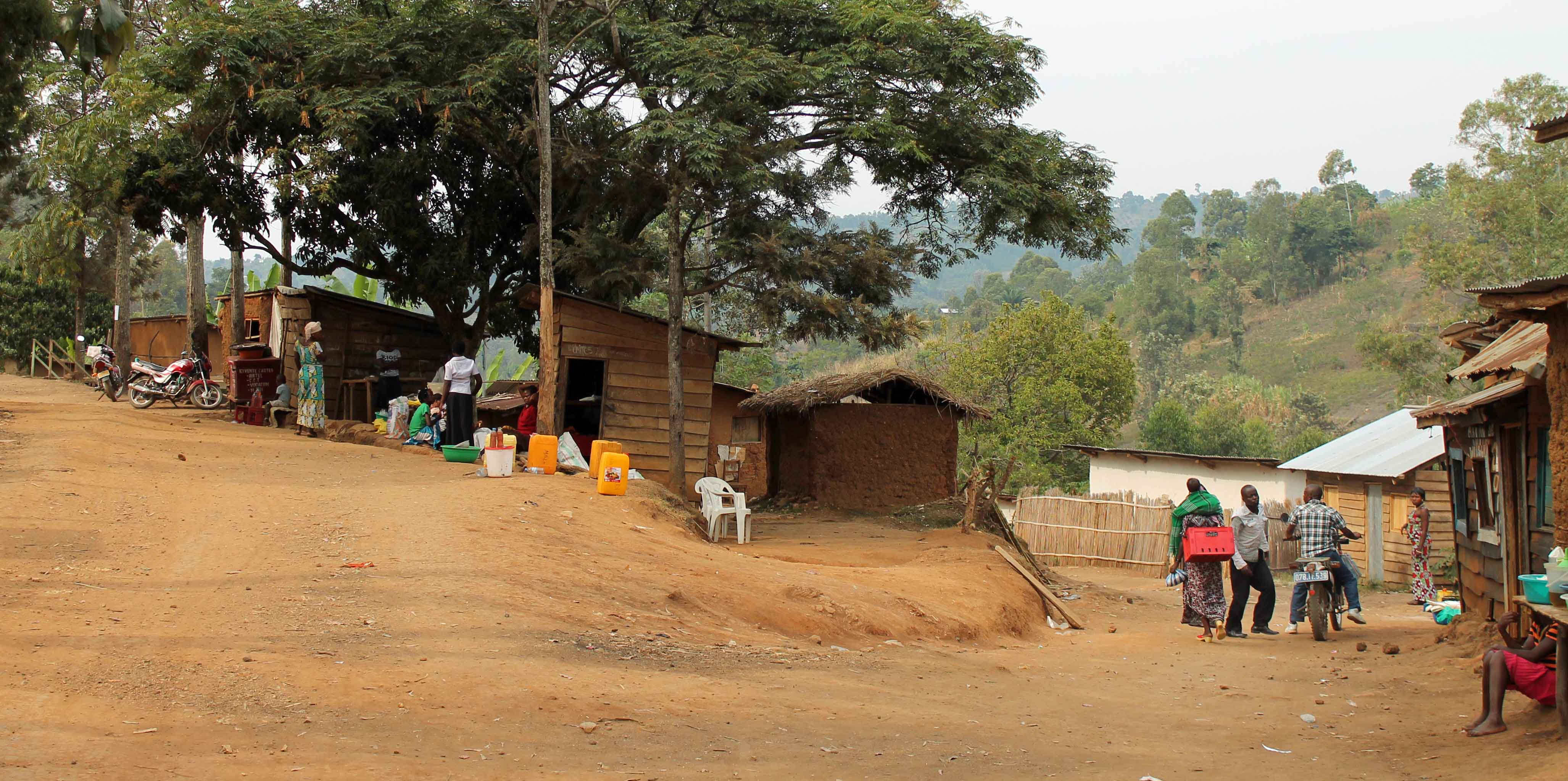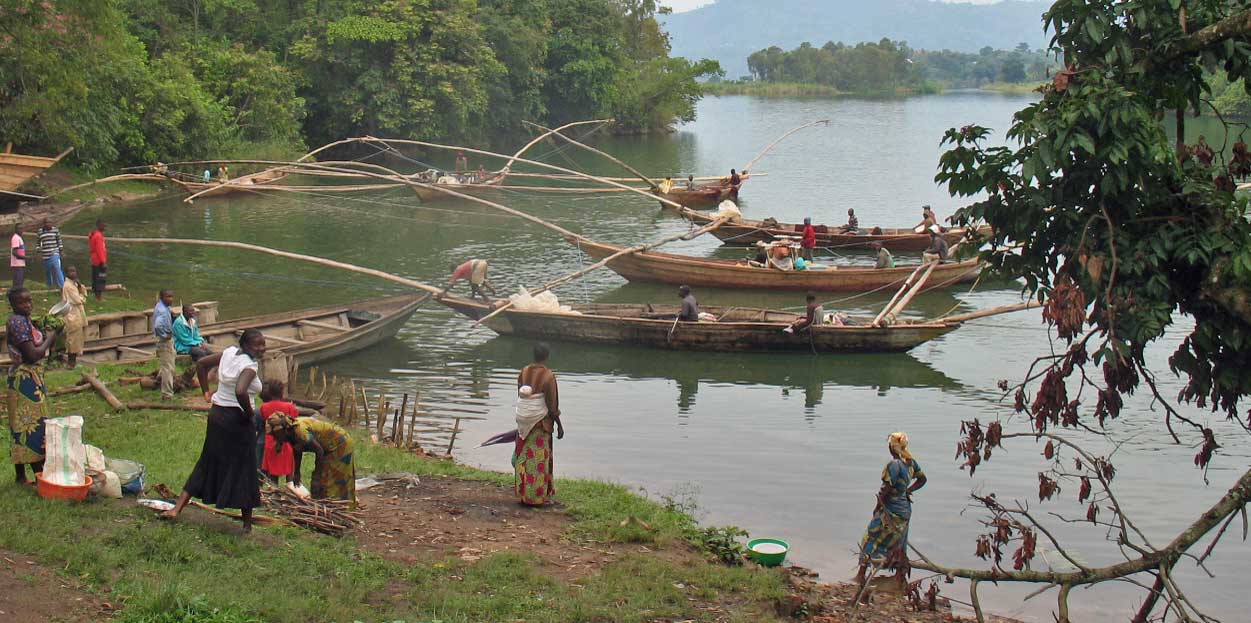Idjwi is a large island in the middle of Lake Kivu in the East of the Democratic Republic of Congo.
Administratively the island is divided into two chiefdoms, one in the north called Rubenga and one in the south called Ntambuka. Our work is concentrated in the north and has the support of the Mwami (or Chief) and his wife, both of whom are wise and highly respected.
This video gives some insight into the tranquility of the environment and friendliness of the people…
The island population has grown from 38,000 in 1978 to over 250,000 today, the majority of whom practice subsistence agriculture. Such population growth is placing pressure on the land and forest and an incurable bacterial disease known as banana xanthomonas wilt is now wiping out much of Idjwi’s valuable banana and plantain crop.

The loss of the staple crop combined with the shrinking amount of available arable land has led to increased poverty and malnutrition. The people grow cassava, beans and sweet potato and many have turned to fishing on the lake to supplement their diet. Even so, according to a 2011 Harved-led study, only 15 percent of the island’s residents have enough to eat, 50% of children have only one meal a day and Kwashiorkor (malnutrition in children caused by extreme protein deficiency) is a particularly pressing issue. The same report identifies high levels of violence against women and estimates that 92% of the people have malaria and 82% live on less than$1 per day.
The indigenous Bambuti people suffer still more. They live in extreme poverty and earn on average only 10% of the money earned by the majority Havu people.

In some parts of the island there are artisanal mines that provide work for several hundred people. Digging underground by hand is dangerous and the miners put their lives at risk every day in search of cassiterite, coltant and niobium.
Coffee has been grown on the island for more than half a century and offers the islanders the best chance for a better future. Production techniques are being improved and direct exports are now facilitated by Ensemble Pour la Difference. The hope is that exports to Europe and the USA will end or at least reduce the smuggling to neighbouring countries. Locally made boats are used to smuggle the coffee across Lake Kivu. But the lake is subject to storms that sink the boats and as a result hundreds of coffee growers Idjwi have died.
In 1996, the island was overwhelmed by 46,000 Hutu refugees fleeing Rwanda in the wake of the Rwanadan civil war, which in turn led to attacks from Tutsis still waging war against the Hutus in retaliation for the Rwandan genocide.
Since then the island have benefited from peace and there is a sense of tranquility and a friendliness extended to visitors that may one day encourage tourists who might come to appreciate this quiet and quite beautiful corner of the country. It has been spared the presence of the FDLR and there is potential for ecotourism without the need for security measures. Paradoxically, the peace and security that has been given to Idjwi, is also its misfortune in that the island has been largely ignored by humanitarian agencies and is absent from the stabilization and reconstruction plans. For this reason a report by Geo on the Arte TV channel in France called Idjwi ‘L'île oubliée d'Afrique’ (Africa's Forgotten Island).